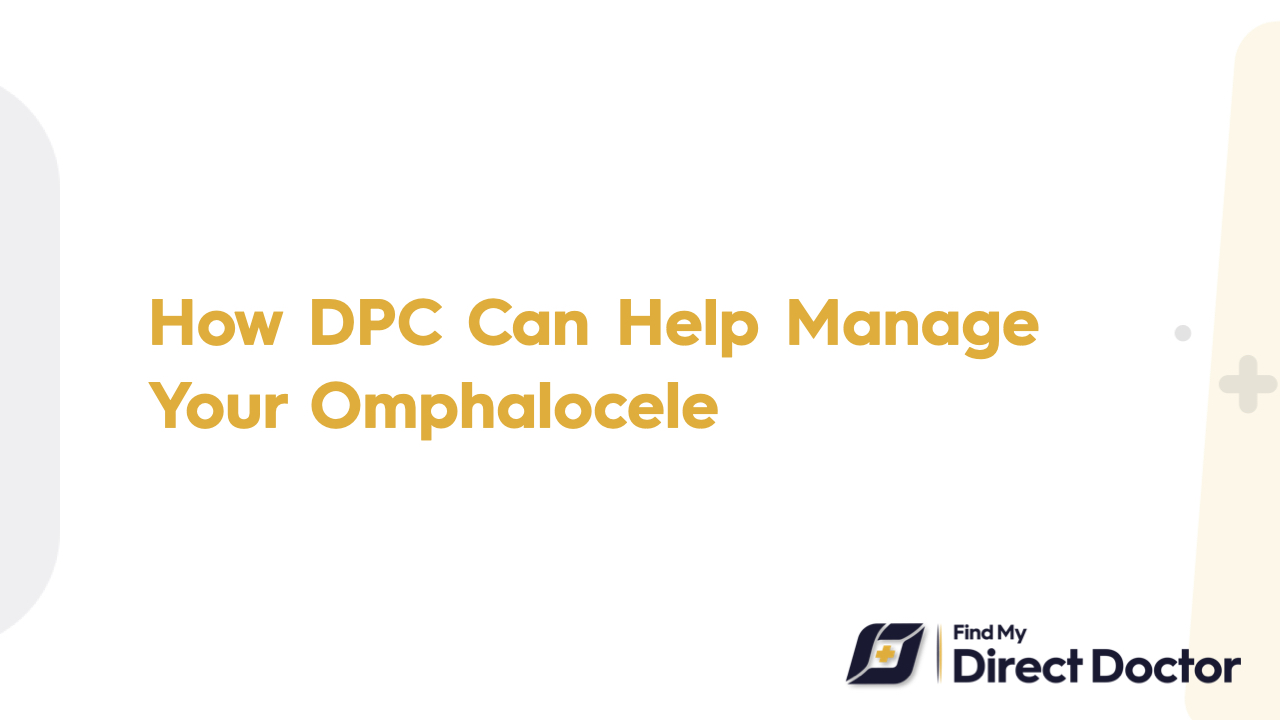



In the unusual birth abnormality known as omphalocele, the intestines, liver, or spleen of a baby protrude outside the body through a hole in the belly button. This happens when the muscles in the abdominal wall do not completely contract during fetal development. Usually, an ultrasound during pregnancy or after delivery is used to diagnose the problem. The size and contents of the sac determine the symptoms of omphalocele. Larger cases might involve major organs outside the body, which may cause breathing or feeding issues as well as an increased risk of infections or other consequences. Babies with a tiny omphalocele may only have a little protrusion.

Because Direct Primary treatment (DPC) offers ongoing, individualized treatment for both the parents and the infant, it can be quite helpful in controlling omphalocele. The DPC model makes it simple and straightforward for parents to contact medical professionals, enabling regular check-ups on the infant's health. This could involve routine evaluations of a newborn's organ development and general health, as well as quick medical attention when required. In order to ensure that families receive timely guidance on feeding, developmental milestones, and any follow-up procedures or treatments required for the baby's long-term health, DPC also offers a comprehensive support system.
DPC provides a number of benefits for families dealing with omphalocele. The chance to establish a strong, ongoing contact with medical professionals who can provide knowledgeable direction during the baby's treatment and recuperation is one of the main advantages. The concept places a strong emphasis on accessibility, which is crucial for parents who require prompt care or guidance regarding their child's condition. Faster interventions, less dependence on emergency care, and a more seamless transfer between pediatric care teams are all made possible by DPC, which guarantees that treatment is responsive and holistic. Additionally, DPC offers a more practical and efficient way to manage the complications of omphalocele by eliminating the need for lengthy wait times and repeated visits.
The treatment of omphalocele is very individualized in Direct Primary Care. Based on the severity of the ailment, the organs involved, and the baby's general health, medical professionals customize the treatment strategy. Following delivery, this can entail surgical procedures to realign the organs as well as a carefully thought-out follow-up strategy to track healing and avoid complications. DPC makes it possible for regular examinations, direct communication with experts, and tailored care plans, guaranteeing that each child's path is accompanied by consideration for their particular requirements. This tailored approach offers a more concentrated, ongoing care experience for the infant and the family, addressing both short-term and long-term issues associated with omphalocele.
Previous Post